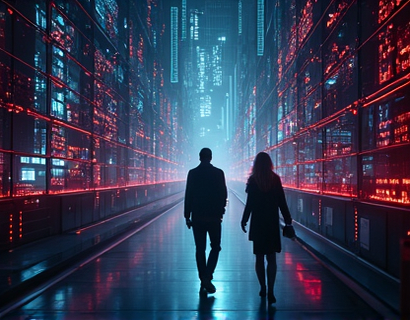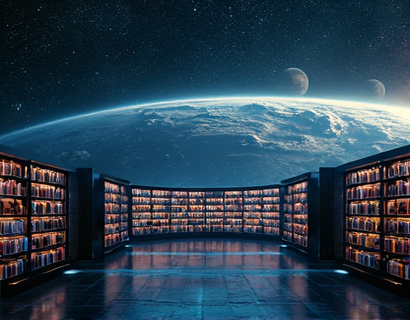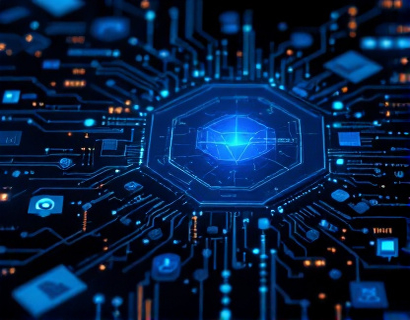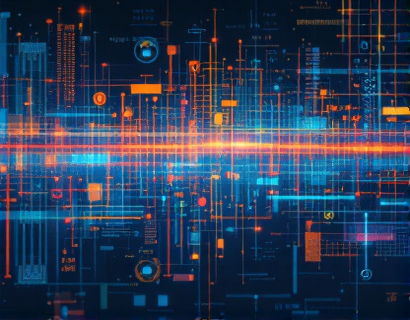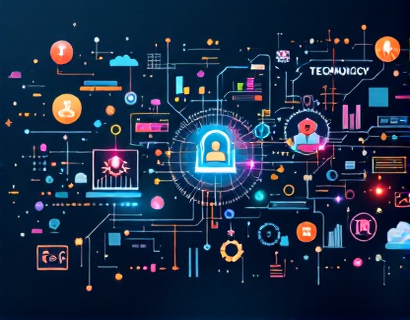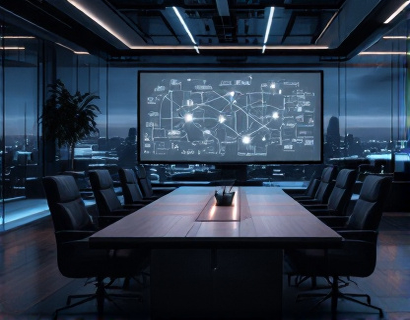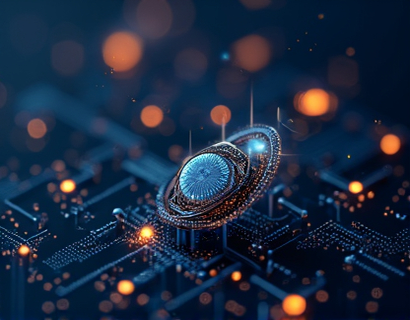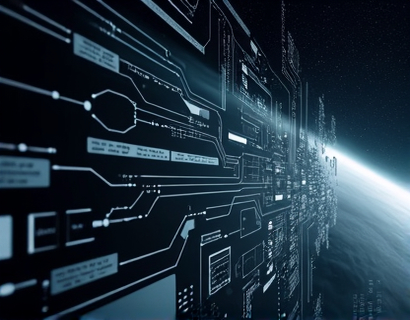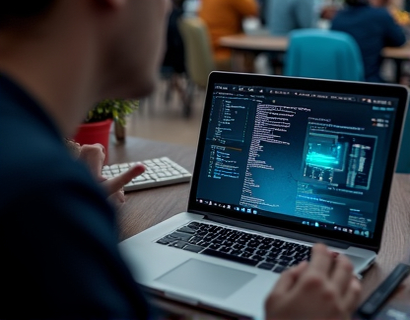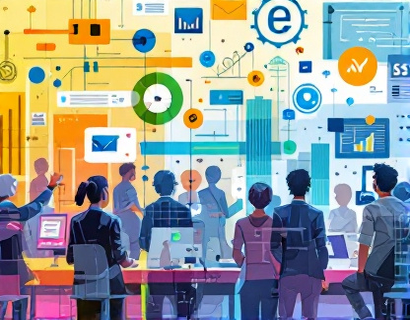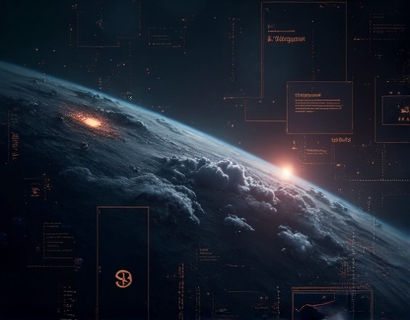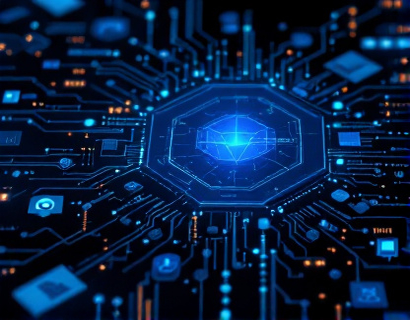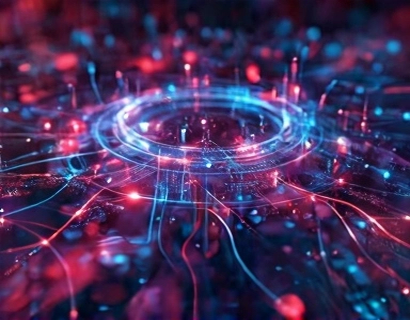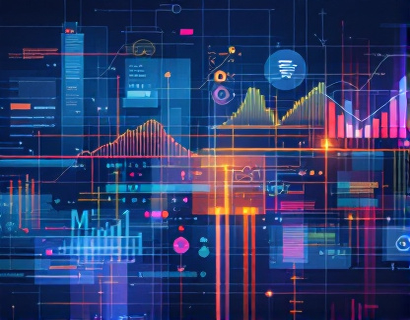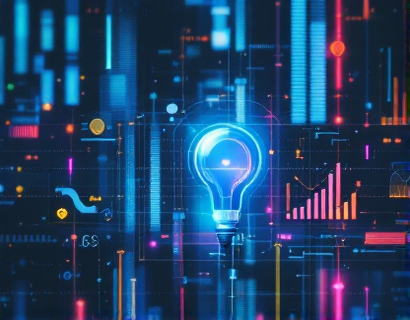Decentralized Productivity: Maximizing Efficiency and Innovation with AI and Crypto Integration
The integration of artificial intelligence (AI) and cryptocurrency is ushering in a new era of decentralized productivity tools. This convergence promises to redefine how we collaborate, manage tasks, and innovate in the digital space. For tech innovators and early adopters, understanding this synergy is crucial to harnessing the full potential of decentralized solutions. This article delves into the intricate relationship between AI, crypto, and decentralized productivity, offering insights into the tools and platforms that are shaping the future.
Decentralized productivity tools leverage blockchain technology to create transparent, secure, and efficient systems. Unlike traditional centralized models, these tools distribute control among network participants, eliminating single points of failure and enhancing trust. AI, on the other hand, brings intelligence and automation to these systems, optimizing processes and providing insights that drive innovation.
Foundations of Decentralized Productivity
At the core of decentralized productivity lies blockchain technology. Blockchain is a distributed ledger that records transactions across multiple computers, ensuring data integrity and transparency. Each block in the chain contains a cryptographic hash of the previous block, a timestamp, and transaction data. This structure makes it nearly impossible to alter past transactions without consensus from the network, providing a high level of security.
Smart contracts are another fundamental component of decentralized systems. These self-executing contracts with the terms directly written into code automatically enforce and execute agreements when predefined conditions are met. Smart contracts reduce the need for intermediaries, lowering costs and increasing efficiency. In the context of productivity, smart contracts can automate workflows, manage payments, and ensure compliance with predefined rules.
AI in Decentralized Systems
AI enhances decentralized productivity by providing advanced analytics, predictive insights, and automated decision-making. Machine learning algorithms can process vast amounts of data to identify patterns and trends, offering valuable insights to users. For instance, AI can optimize resource allocation, predict maintenance needs, and personalize user experiences based on behavior and preferences.
In decentralized environments, AI can facilitate more intelligent and autonomous interactions. For example, AI-powered chatbots and virtual assistants can handle customer inquiries, manage schedules, and provide real-time support without human intervention. These AI-driven tools not only improve efficiency but also enhance the user experience by providing instant and accurate responses.
Decentralized Collaboration Tools
One of the most significant applications of AI and crypto integration is in decentralized collaboration tools. Traditional collaboration platforms often suffer from centralization issues, such as data breaches, censorship, and limited scalability. Decentralized alternatives address these concerns by distributing data and control across a network of nodes.
Project management tools like decentralized task boards and calendars use blockchain to ensure that all team members have access to the same, immutable data. AI can enhance these tools by automating task assignments, tracking progress, and providing predictive analytics to optimize team performance. For example, an AI-driven task manager can analyze historical data to predict which team member is best suited for a particular task based on past performance and availability.
Decentralized Marketplaces
Decentralized marketplaces are another area where AI and crypto converge to revolutionize productivity. These platforms allow users to buy, sell, and exchange goods and services without intermediaries, reducing transaction costs and increasing transparency. AI can improve these marketplaces by providing sophisticated matching algorithms, fraud detection, and personalized recommendations.
For instance, a decentralized job marketplace can use AI to match job seekers with suitable positions based on skills, experience, and preferences. Smart contracts can automate the hiring process, ensuring that payments are made only upon completion of agreed-upon tasks. This not only streamlines the hiring process but also builds trust and accountability between parties.
Enhancing Creativity and Innovation
The combination of AI and decentralized systems fosters a more creative and innovative environment. By removing barriers to entry and enabling peer-to-peer collaboration, these tools empower individuals and small teams to develop and share their ideas without the need for large corporate backing. AI can assist in the creative process by generating ideas, optimizing designs, and providing real-time feedback.
Decentralized content creation platforms leverage AI to enhance the quality and relevance of content. For example, AI-powered writing assistants can help authors refine their work, suggesting improvements in grammar, style, and structure. In the realm of art and design, AI tools can generate unique designs based on user inputs, allowing creators to explore new possibilities and push the boundaries of their work.
Security and Privacy
Security and privacy are paramount in decentralized productivity systems. Blockchain's inherent security features, combined with AI-driven threat detection, provide a robust defense against cyber threats. AI algorithms can monitor network activity in real-time, identifying and mitigating potential security breaches before they occur. Additionally, decentralized identity management systems ensure that users maintain control over their personal data, enhancing privacy and reducing the risk of data misuse.
Privacy-preserving techniques such as zero-knowledge proofs allow users to verify transactions without revealing sensitive information. This ensures that collaborative environments remain secure while maintaining the integrity of individual contributions. AI can further enhance privacy by anonymizing data and detecting unauthorized access attempts.
Challenges and Considerations
While the potential of AI and crypto integration in decentralized productivity is vast, several challenges must be addressed. Scalability remains a significant issue, as blockchain networks can struggle to handle high volumes of transactions. Layer 2 solutions and cross-chain interoperability are being developed to address these scalability concerns, enabling smoother and faster operations.
Another challenge is the user adoption curve. Decentralized systems often require a higher level of technical understanding compared to traditional centralized solutions. Educational resources and user-friendly interfaces are essential to bridge this gap and encourage broader adoption. AI can play a role here by providing intuitive guidance and support to new users, making decentralized tools more accessible.
Future Outlook
The future of decentralized productivity is bright, with ongoing advancements in AI and blockchain technology paving the way for more sophisticated and user-friendly tools. As more organizations and individuals recognize the benefits of decentralized systems, the demand for AI-enhanced solutions will continue to grow. The integration of AI and crypto will not only optimize productivity but also drive innovation, fostering a more inclusive and dynamic digital ecosystem.
For tech innovators and early adopters, embracing this convergence is key to staying ahead in the rapidly evolving tech landscape. By leveraging decentralized productivity tools powered by AI and crypto, these pioneers can unlock new possibilities, enhance collaboration, and redefine what is possible in the digital world.



